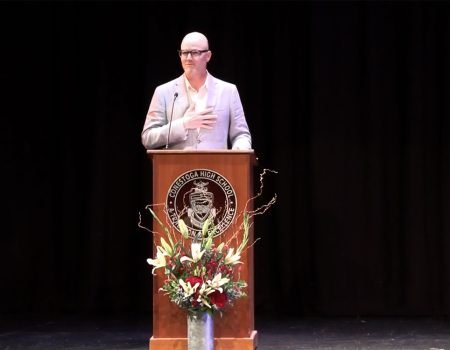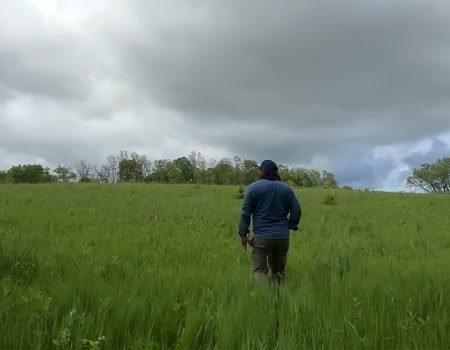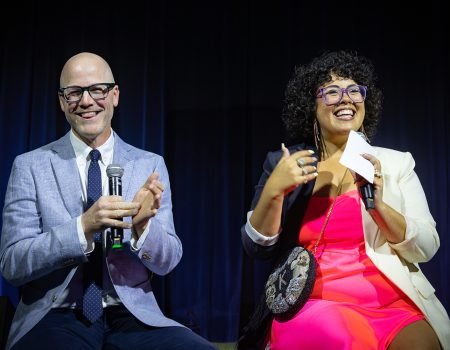Neal Carruth: Radiohead
When I was twelve or so, I fashioned a desk from a cardboard box, placed my mom’s Smith-Corona Super Sterling typewriter on top, tucked a slip of paper marked “Press” in my brother’s fedora and began publication of a neighborhood broadsheet.
Little wonder Freakonomics Radio Network’s EVP, Neal Carruth, and I get along like gangbusters.
Neal was raised in The Twin Cities by progressive Southern parents, where he was captivated by local radio powerhouse, WCCO.
“They were very clear descendants of the early days of radio,” Neal says. “They used sound effects. They had characters. They did impressions. And I think all that stuff kind of activated my theatrical imagination.”
Neal, an avid movie fan, wasted no time crafting his own “theater of the mind.”
“I had like a little radio studio set up in the basement,” he says. “My parents gave me a boombox with a couple of tape decks, which would allow you to kind of layer in sort of a crude way like sound effects. And so I would write little scripts.”
It was an early career discussion with NPR legend, Don Ganyea, that helped Neal begin to make a career out of his disparate interests.
“I got to know [Don] when I was an intern at the NPR member station in Detroit during my college years,. He used to say that he thought of his pieces as little movies for the mind; when he sat down to write a script, he imagined that he was writing a little movie.”
In nearly two and a half decade at NPR, Neal worked as a booker, field producer, director, line producer, business editor, and programming executive. As Senior Director of On-Demand News Programming, Neal oversaw popular shows like Planet Money, Hidden Brain, Up First, and Rough Translation, and helping build NPR into the nation’s largest news podcast company.
In May, Neal joined the Freakonomic’s Radio Network as Executive Vice President. The network, born of Stevens Dubner and Levitt’s groundbreaking 2005 book, explores the hidden side of things you always thought you knew (but didn’t) and things you never thought you wanted to know (but do).
This week, in the first in a series of episodes sponsored by the Media Transformation Challenge at the Poynter Institute, Neal walks us step-by-step through his exceptional career and provides a deep dive into how his MTC experience helped him drive transformation at NPR, catalyzed personal and career growth, and provided immediate value in the early days of his new role.
And he shares hard lessons.
“It’s journalism. Things are fluid and fast-moving. You’re going to make mistakes,” he says. “Hopefully, you don’t make the same kind of mistake too many times. One of my early bosses, Sharon Ball, told me after I made a mistake early on, ‘Let’s just make sure you don’t make that one again.’ Just keep making new mistakes.”



